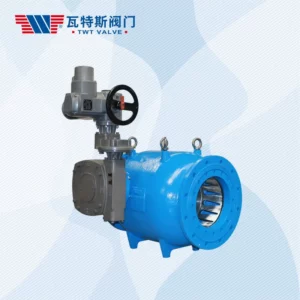The design of a fixed cone valve must take into account several factors, including the size of the valve, the flow rate, and the pressure of the fluid being controlled. The valve must be constructed from materials that are resistant to corrosion and erosion, and the cone and cylinder must be carefully machined to ensure a tight fit. In addition, the valve must be designed to minimize pressure drop and turbulence, which can reduce efficiency and increase wear on the valve.
The design considerations for fixed cone valves include:
- Flow rate: The valve must be designed to handle the expected flow rate of the fluid being controlled. This includes considerations such as the size of the valve, the shape of the cone, and the angle of the cone.
- Pressure rating: The valve must be designed to withstand the pressure of the fluid being controlled. This includes considerations such as the thickness of the valve walls and the materials used in its construction.
- Materials: The valve must be constructed from materials that are resistant to corrosion, erosion, and wear. This includes considerations such as the choice of metals and coatings for the valve components.
- Sealing: The valve must be designed to create a tight seal between the cone and the cylinder to prevent leakage. This includes considerations such as the surface finish of the cone and cylinder and the use of gaskets or other sealing materials.
- Turbulence and pressure drop: The valve must be designed to minimize turbulence and pressure drop, which can reduce efficiency and increase wear on the valve. This includes considerations such as the shape of the cone and cylinder, the position of the valve in the piping system, and the use of flow straighteners or other devices to reduce turbulence.
What are the applications of fixed cone valves?
Fixed cone valves have several applications in various industries, including:
- Water distribution systems: Fixed cone valves are commonly used in water distribution systems to control the flow of water in pipes. They are used in both municipal and industrial water supply systems, as well as in irrigation systems.
- Hydropower plants: Fixed cone valves are used in hydropower plants to regulate the flow of water in turbines. China fixed cone valves They are typically used in high-head applications where the flow rate and pressure of the water are high.
- Oil and gas industry: Fixed cone valves are used in the oil and gas industry to control the flow of fluids in pipelines. They are typically used in applications where high pressure and high flow rates are required.
- Chemical processing: Fixed cone valves are used in chemical processing plants to control the flow of fluids in pipelines. They are typically used in applications where precise flow control and resistance to corrosion and erosion are required.
- Mining: Fixed cone valves are used in mining operations to control the flow of slurry in pipelines. They are typically used in applications where high flow rates and resistance to wear and erosion are required.
